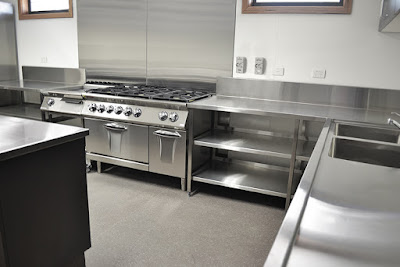Mandatory Requirements for Food Industry:
Conditions of food-safety metals are that they must…
- Be durable and non-absorbent.
- Be resilient to scratching, scoring, and chipping.
- Be resistant to corrosion.
- Be impermeable to harmful substances.
- Have a smooth, easy to clean surface.
- Be adequate enough to withstand repetitive cleaning.
Stainless Steel grades:
There are three main types of stainless steel used globally. Food-safe 304 steel is the most commonly used for stainless steel benches, stainless steel sinks and delivers standard structure and strength, and with its renowned anti-corrosion resistance, its suitable for most food products. Grade 316 is less commonly used but is more expensive and infinitely superior in its resistance to chlorides and acids and is used in high-end food machinery production. The 430 steel is a cheaper option, with less nickel content, making it less resistant to rusting, but maintaining its strength against stress corrosion. It is adequately substantial for splashbacks and specific catering apparatus.


No comments:
Post a Comment